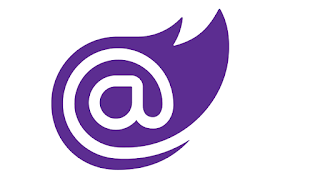Live data updating in Blazor
Providing live data updates or data synchronization in a multi-user environment has always been a bit challenging. I have been chasing how to do live updates and day sync between desktop applications, web applications, and even temporarily disconnected clients.
I have worked with Sales applications and legal applications where users needed to work but did not have access to the internet or a network. Even though I was able to provide a solution, they were too complex and too hard to maintain for what I care for.
Thanks to ZetBit, I was able to find an awesome solution to move forward with. This solution is only using Microsoft SQL Server and a cool Nuget package called SQLTableDependancy.
For this solution, you need to enable the Service Broker in SQL Server. This will generate events when records in the database are added, edited, or deleted. Using the SQLTableDependancy class you set event listeners for what tables you want to listen to.
Thanks to the Blazor being designed to update UI changes, in your event handler, you refresh the collection of the table change and call "StateChanged". That's pretty much it. Let's look into the details.
To see how this solution works simply run the application and go to the jobs page. Open the database and open the Jobs table for edit. Make a change in the database and watch it update automatically in the UI. It's magic!
Sample Application
For the sample application:
- Created Balzor Server Project. Would work the same for a WASM project
- Added the Entity framework Nugets and the SQLTableDepednance Nuget
- I used Entity Framework for my DAL. I created a single class, Job, that I would be updating.
- I created a Job Service class that would actually get the data.
- I created a new page to display the jobs from the database. I used the same process the Weather Fetch page uses.
- I tested to make sure the basic page was working.
- I then Wired in the Event Handler
SQL Server Database Create Enable Broker
When you create the database to use with this project, you need to enable the broker service. This is under "Other Options" => "Service Broker". Then just create the new database.
Set up Event Listener
I created the event handler in the Job Service class. You need a reference to the SQLTableDepenancy class:
private readonly SqlTableDependency<Job> _dependency;
In the constructor, you initialize the objects and define the event:
_connectionString = "Server=ServerName;Database=CompanyDatabase;Trusted_Connection=True;";
_dependency = new SqlTableDependency<Job>(_connectionString, "Jobs");
_dependency.OnChanged += Changed;
_dependency.Start();
Note the connection string is required. You would normally handle the security of the connection string as it is done in other places. This is just to show what is need to how to set the event up. Don't do this in a production environment.
Handle the Event
We now need to wire in the action to take when the event fires. We want to get the latest records from the database and refresh the display:
private async void Changed(object sender, RecordChangedEventArgs<Job> e)
{var employees = await GetAllJobs();await InvokeAsync(StateHasChanged);}
Use SignalR to Process Messages
I better and more scalable solution would be to use SignalR to manage the message processing. There are several good references on how to implement SingalR. For this project, I simply created a JobHub class that will send out a message to All clients listening for the RefreshJobs message. Then on the Jobs page, I register for the "RefreshJobs" message and connect to the hub.
List<Job> jobsList = new List<Job>();private HubConnection? hubConnection;protected override async Task OnInitializedAsync(){jobsList = await jobService.GetAllJobs();hubConnection = new HubConnectionBuilder().WithUrl(Navigation.ToAbsoluteUri("/jobhub")).Build();hubConnection.On<List<Job>>("RefreshJobs", jobs =>{jobsList = jobs;InvokeAsync(StateHasChanged);});await hubConnection.StartAsync();}



%20built%20with%20Blazor.%20The%20scene%20features%20a%20dynamic%20web%20app%20running%20o.webp)

Comments
Post a Comment